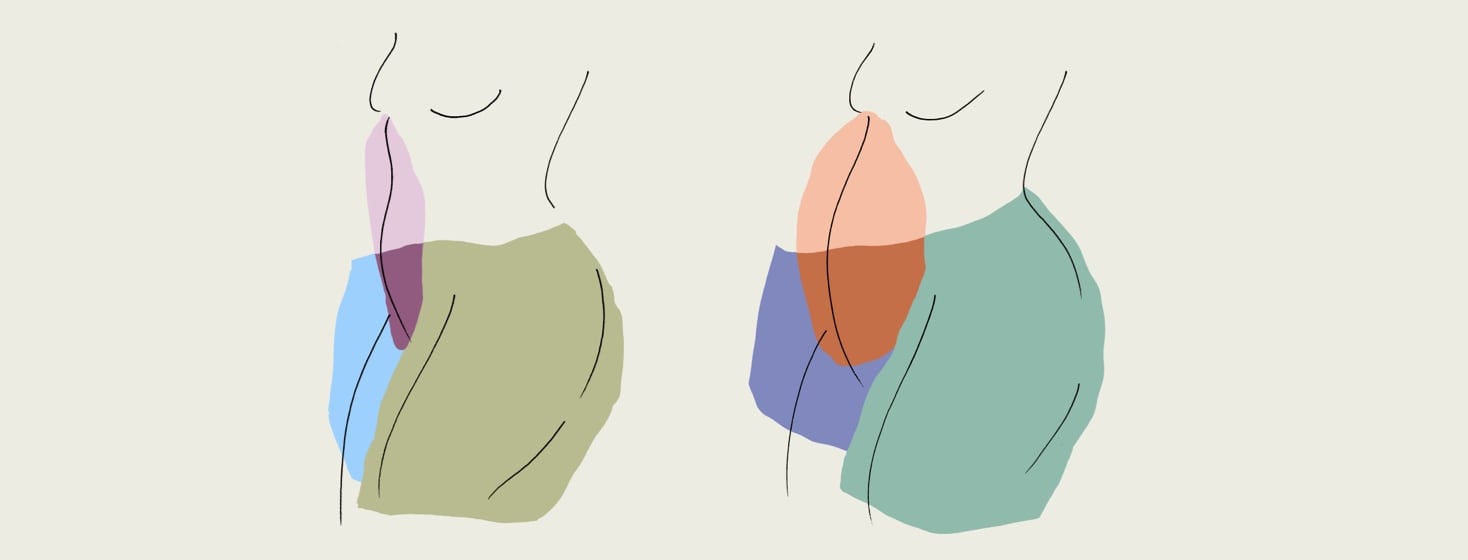Gas and Bloating With IBD
Reviewed by: HU Medical Review Board | Last Reviewed: November 2022 | Last updated: November 2022
Inflammatory bowel disease (IBD) refers to several conditions that cause inflammation in the digestive tract. The two most common are Crohn's disease and ulcerative colitis.
IBD can cause symptoms such as:1,2
- Diarrhea
- Constipation
- Stomach pain
- Tiredness or fatigue
- Weight loss
Other common symptoms are gas and bloating. Gas and bloating can be uncomfortable, but there are ways to manage them.1,2
What causes gas and bloating?
It is normal to have some gas in your intestines, or gut. Some of it comes from air you swallow while eating. The bacteria in your gut also make gas when they break down food. Your body produces several liters of gas every day as you digest food.2
People with IBD may produce more gas overall than other people, which can contribute to uncomfortable gas and bloating. Also, those with IBD are more likely to have other conditions that cause gas. These conditions include irritable bowel syndrome (IBS) and lactose intolerance.2,3
Gas is normally passed through your body as wind. But if it cannot pass, trapped air causes bloating. Constipation is one reason gas sometimes cannot pass through the gut.2,3
What foods can cause gas and bloating with IBD?
Experts still do not know exactly what causes IBD. But they believe the foods you eat may play an important role, along with other factors like genetics. Your diet affects the mix of bacteria in your gut, and these bacteria have an important role in digestion.3
Research suggests that certain foods may harm your gut bacteria and cause inflammation. This inflammation may be related to IBD.3
Some foods are harder to break down in the gut. This can cause them to produce extra gas. So, avoiding these foods may reduce gas. Foods that may cause extra gas and bloating include:2,4
- Fatty foods
- Sugary foods
- Foods with the artificial sweetener sorbitol
- High-fiber foods
- Spicy foods
- Raw vegetables
- Complex carbohydrates like beans or cabbage
- Changing your diet to reduce gas and bloating
More research is needed to understand exactly how diet affects IBD. Existing research has not led to diet recommendations that work for everyone. The best option is to work with a gastroenterologist and dietitian to help determine the best diet for you.2,4
Your doctor may recommend that you try an exclusion diet. An exclusion diet starts with eating only foods that do not trigger IBD symptoms. As time goes on, you can introduce new foods. If any new food triggers symptoms, it will be removed from the diet. This way, you can learn what your unique trigger foods are.2,4
Other ways to manage gas and bloating
As described above, changing your diet can change how much gas your gut bacteria produce. You can also try to limit how much air you take in when eating or drinking.2
For example, eating large bites quickly can cause you to swallow excess air. Try to take small bites and chew your food well with your mouth closed. Avoid drinking carbonated waters or soda, which can cause bloating. Any air bubbles that are not belched up will move down into your gut.2
Other actions that may reduce gas include:2
- Drinking 6 to 8 glasses of water per day with small sips (do not gulp)
- Avoiding caffeinated drinks like coffee or energy drinks
- Avoiding alcohol
- Wearing loose-fitting clothes
- Taking short walks to help digestion
If you are having painful bloating, you can try a belly massage to help the air pass through your gut. Try massaging your stomach from right to left with firm but gentle pressure.2
It may take time to figure out what helps your gas and bloating. But with time, it is possible to manage these symptoms.2

Join the conversation